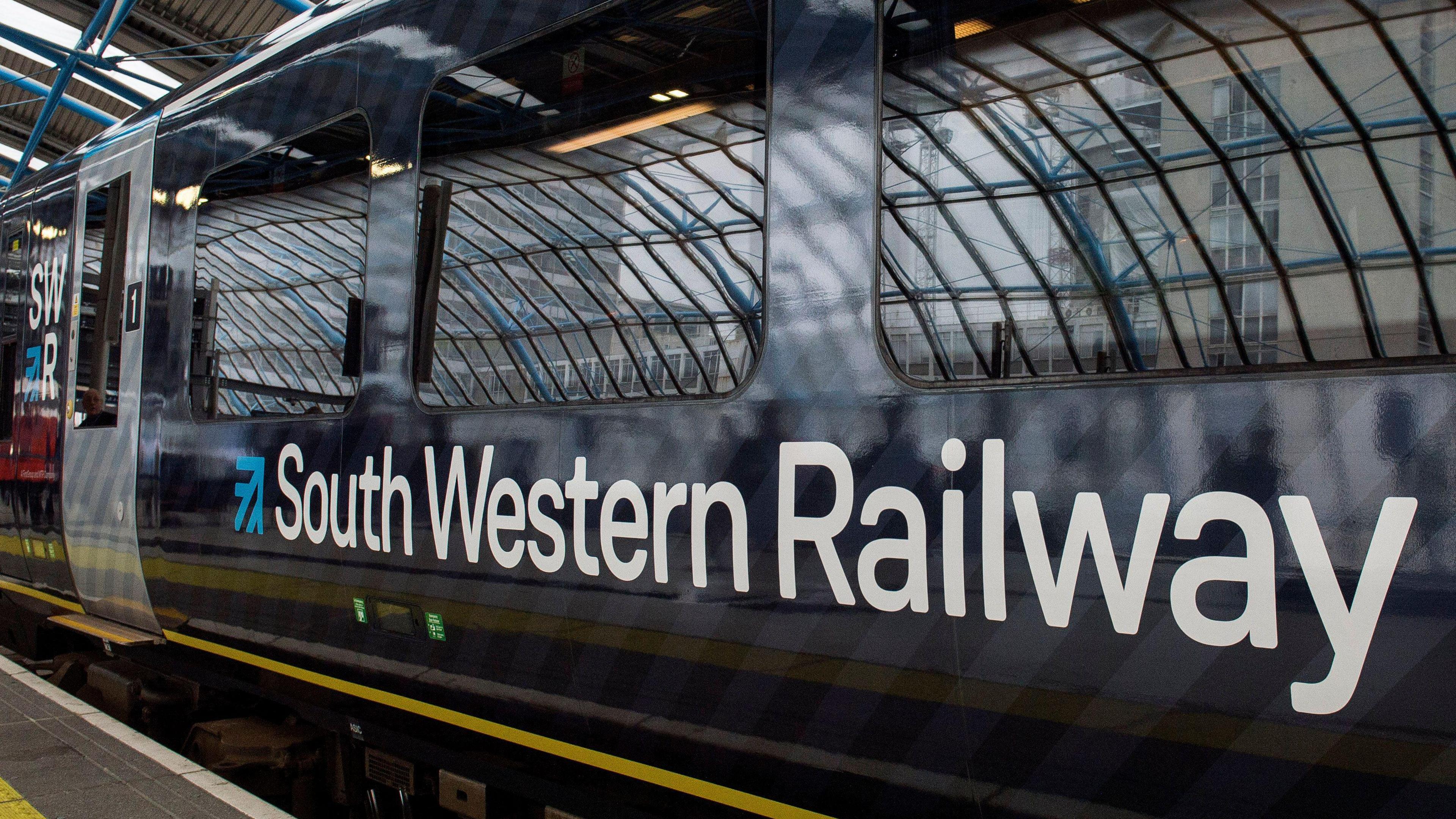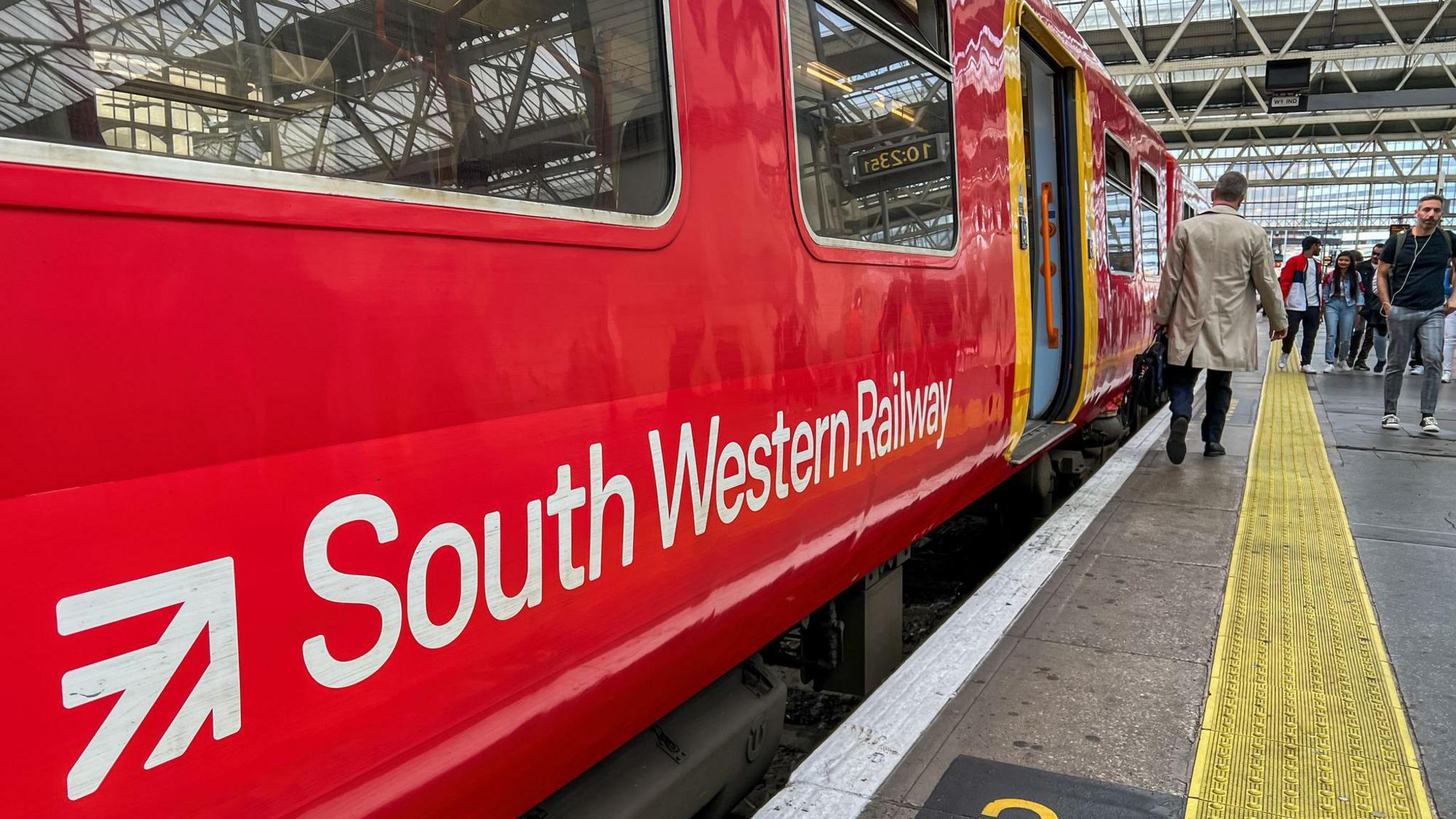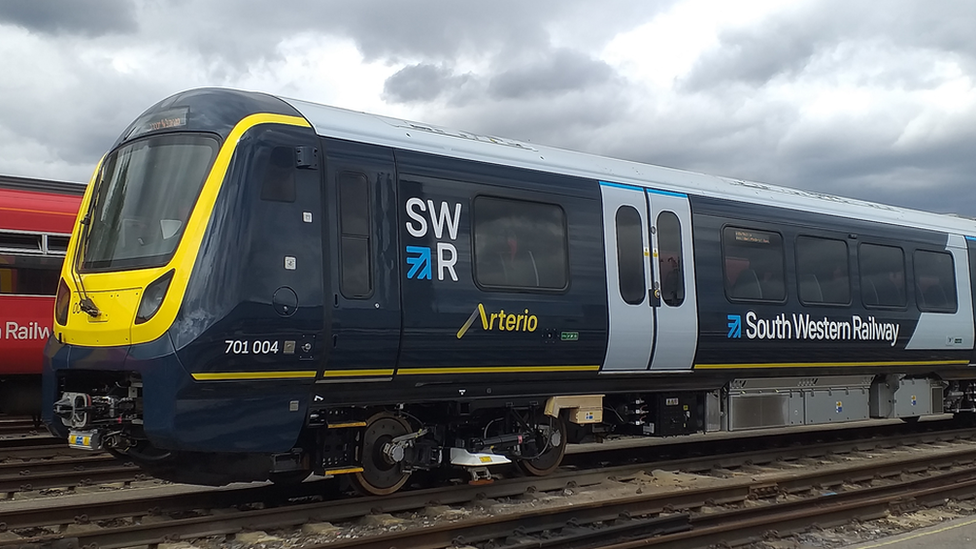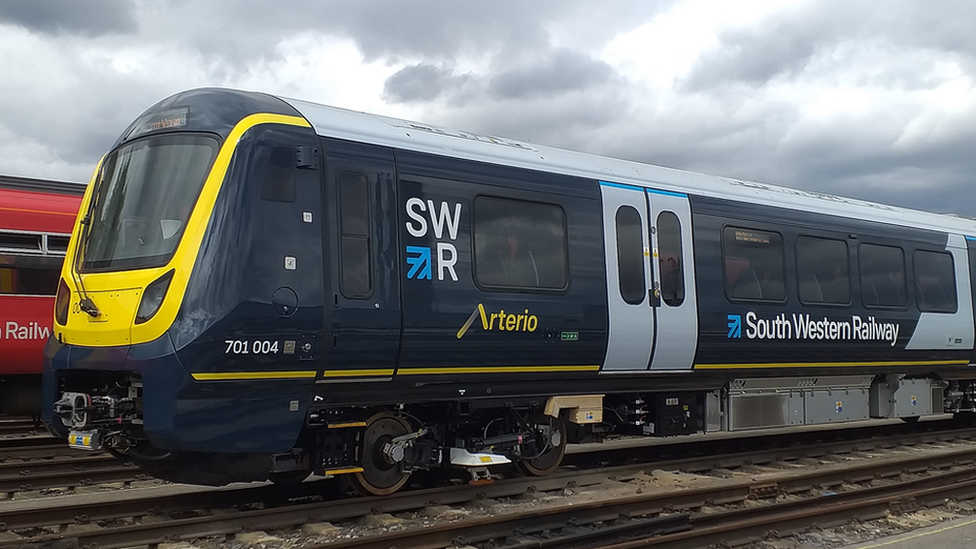What difference will rail nationalisation make?

South Western Railway will be nationalised in May 2025
- Published
South Western Railway will return to the public sector next May but will it make any difference for passengers?
On 4 February 1996, what was then South West Trains ran the first privatised service of the modern era.
I was on it - the 05:10 GMT from Twickenham to Waterloo, hailed by politicians as a new beginning.
Now, 29 years later, one of the UK's largest rail operators will come to an end and services from Hampshire, Surrey, Wiltshire, Dorset, Berkshire and Devon to London Waterloo will return to the public sector.
What is nationalisation?
Nationalisation simply means bringing something - such as a service, company or an entire industry - under the control and ownership of the state or government.
Under the existing system, Britain's railway lines are run by train operating companies as franchises for a fixed length of time.
These firms are privately owned but as their franchise periods come to an end, the government has decided it will take control instead of looking for more private companies to take over the railways.
SWR is the company with the franchise that ends soonest, hence why its railway services will be the first ones nationalised.
Will nationalisation improve rail services?
No, not in the short term.
During the pandemic lockdown, passenger numbers plummeted by 94%.
The government stepped in to prevent every train operator collapsing, ending the system of private sector franchising.
Since then, the private operators have received a management fee for delivering a tightly-specified service.
This gives ministers and their civil servants greater control of day-to-day running of the railway than they ever had under British Rail.
Will rail fares get cheaper after nationalisation?
No. In the Budget on 30 October, Chancellor Rachel Reeves announced that regulated fares would rise in January by 4.6%.
With inflation currently at 2.3%, travelling by train will cost more in real terms.
Will rail nationalisation save public money?
The government says ending the payments to private sector operators will save £150m a year.
Total public spending on the railway in the UK in 2023-24 was £26.8 billion, according to government statistics. So it is not a huge saving.
And it is a risk for the government as next time something goes wrong on the railway, they will have no-one else to blame.
Is rail nationalisation a surprise?
No. Nationalisation was in Labour's election manifesto.
South Western Railway (SWR) is run by First Group and MTR, and its contract expires in May.
It was always clear this would be the first operator to end.
The Passenger Railway Services (Public Ownership) Act 2024, which passed last week, allows the government to act on its manifesto promise to take rail contracts back into public ownership in five years as each private franchise runs out.
Will the SWR brand disappear?
Not in the short term.
Eventually, Network Rail and the public sector train operators are likely to become part of a new organisation called Great British Railways.
That requires legislation and it is likely to take a couple of years.
It would not make sense to rebrand all the trains now, ahead of bigger decisions about national and regional rail identities.
Will other rail operators be nationalised?
Yes. The Department for Transport has stated that c2c and Anglia will return to the public sector later in 2025.
Big operators including Govia Thameslink Railway, Great Western Railway (GWR) and CrossCountry have longer contracts, and the government plans to take them over as each expires.
This could take several years.
What will happen to SWR staff after nationalisation?
SWR's 5,000 employees will all transfer to the government's own train operating company, retaining their existing terms and conditions.
Will the whole railway be nationalised?
No. Network Rail, the infrastructure owner, is already in the public sector.
Over time, most train operators will be in the public sector.
But the trains they use are privately financed, and leased to the operators.
Some "open access" operators, which receive no subsidy, will continue in the private sector, and there are likely to be new ones.
Rail freight is also entirely in the private sector.
Get in touch
Do you have a story BBC Hampshire & Isle of Wight should cover?
You can follow BBC Hampshire & Isle of Wight on Facebook, external, X (Twitter), external, or Instagram, external.
- Published4 December 2024

- Published28 November 2024

- Published9 February 2024
